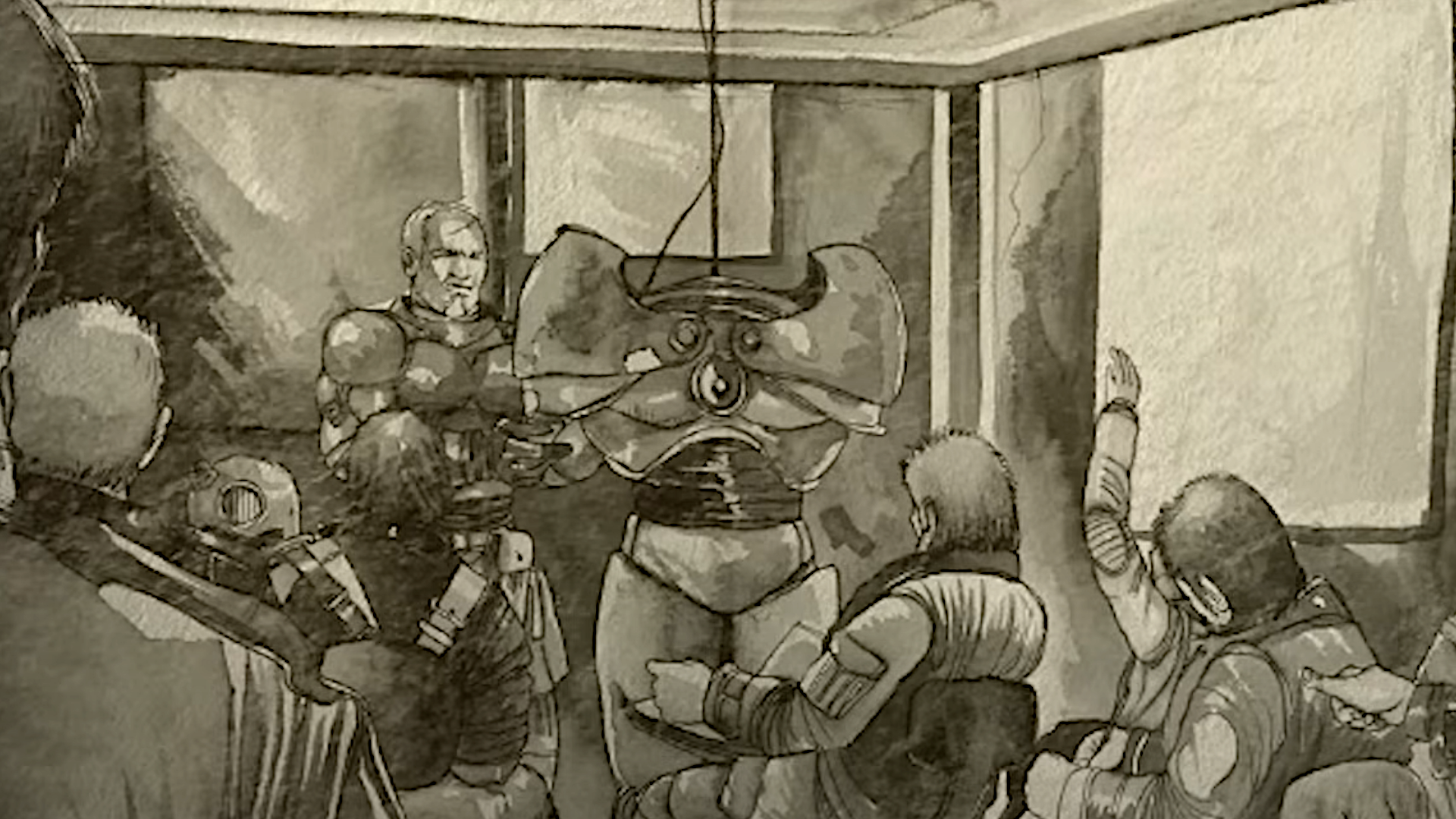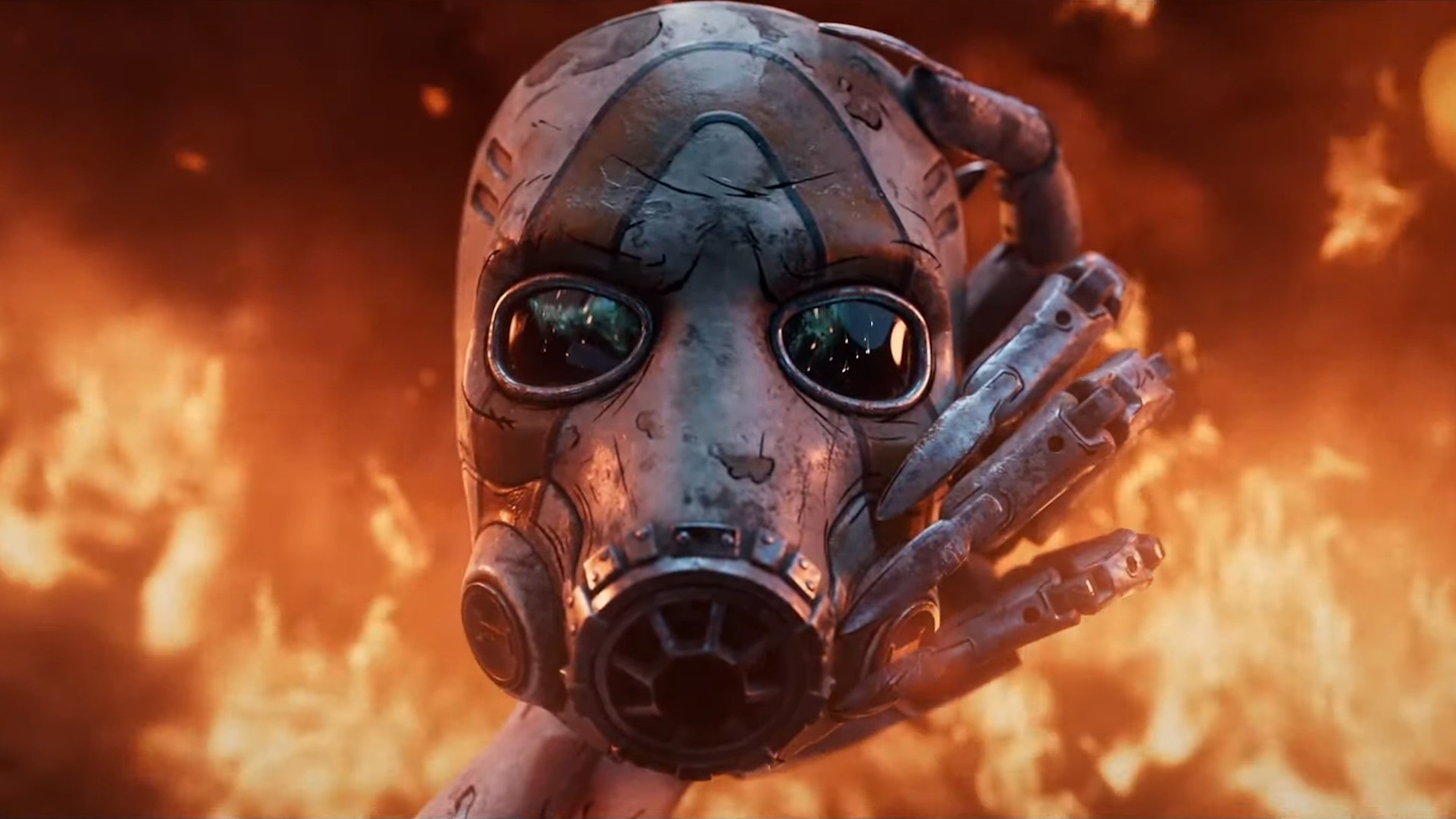
"Our approach was just terrible."
Fallout’s had an interesting journey as a series—starting out as one of those crunchy computer CRPGs under the stewardship of Interplay Entertainment, it was then brought under the Bethesda umbrella in 2007, turning into the FPS RPG you either love or loathe depending on which games you’ve played, and how traditionalist your tastes are.
Turns out, though, there’s a dark horse sandwiched in between those two halves of the series’ history. Fallout Tactics: Brotherhood of Steel was released in 2001, between Fallout 2 (1998) and Fallout 3 (2008). It was developed by Micro Forté under publishers 14 Degrees East and Bethesda Softworks, and it was, at the time, kinda controversial for die-hards.
It wasn’t really an RPG, and more of an RTS-style XCOM thing. Turning away from the previous games’ turn-based combat, Fallout Tactics instead saw you hopping between missions and Brotherhood Bunkers—there was a turn-based option, but after doing some digging, I can’t really find a single person who says that it really worked out.
While Fallout Tactics was a little before my time, the feeling I get just listening to people talk about it, in essence, a mechanically messy game that didn’t quite thread the needles it needed to thread. But don’t just take my word for it: Recently, Jeremy Peel reached out to team lead Ed Orman on behalf of PC Gamer to talk about the game’s development, and he painted a picture of a game that was saddled with hefty time constraints and a confused vision.
“Obviously Speech was the biggest problem for us … you can’t dump any stat because it can’t be ‘PECIAL’, you know? You can’t just drop a letter out of their stat system. That was a huge challenge all the way through. And I think ultimately, we probably didn’t really come up with a good solution for Speech.
“I pushed constantly to make sure that we were using it, and I think it was Tony Oakden who finally was like, ‘Dude, this is not gonna work. We don’t have a solution, and we don’t have any time.’ So I think Speech pretty much withered on the vine.”
It wasn’t just Speech he and his fellow devs struggled to make fit, though. When Peel asks him if the team struggled to work variety into the game, Orman responds bluntly that, yes, they did, and while they didn’t exactly fail at that job, things would’ve been a lot easier if they hadn’t bitten off more than they could chew:
“I think we were worried about that from the beginning. And our approach was just terrible. One way to do that would be to have a smaller campaign, so that it never gets tired and never gets same-y. We didn’t do that. We had a huge campaign.
“It’s all hindsight now, but doing something smaller and more focused would have been so much easier to actually solve that problem of repetition. But instead, we just filled it with stuff. There are so many features. We added vehicles. We added so many things to the game to fill it out instead. It’s a bloody long campaign, and there’s a lot of variety in it.”
In a moment of reflection, Orman considers Fallout: Brotherhood of Steel—not the game his team made, but an ill-fated console release with an unhelpfully similar title made by Interplay Entertainment in 2004, which was more universally-panned: A weird, top-down action RPG that’s far more sacreligious to the spirit of the universe than anything Bethesda made afterwards.
“I feel for the other Brotherhood of Steel game, the console one, because they got panned and I don’t know if that was right or not. But that separation would have probably been a great start. It’s a Fallout game, but you don’t try and say, ‘This is the same kind of game, just the combat part.'”
Orman even tips his hat to what Bethesda managed, and—look, while the move to a first-person shooter was controversial at the time, and I do think the world could always use more CRPGs, I don’t think you can say that Bethesda’s spin was unsuccessful with a straight face, even if it made you want to take up arms and become an old man yelling at a nuclear cloud.
“To Bethesda’s credit, I think they actually did a pretty good job of going, ‘This is a real-time game, but we’re going to put in the time to figure out how to make this work—this core thing of SPECIAL and all of the stats, how to make that actually applicable,” he then adds that gee, it would’ve been nice to have the actual time to do something similar: “It can be done. You just need to be a multinational with more than 18 months. It was ridiculous.”






